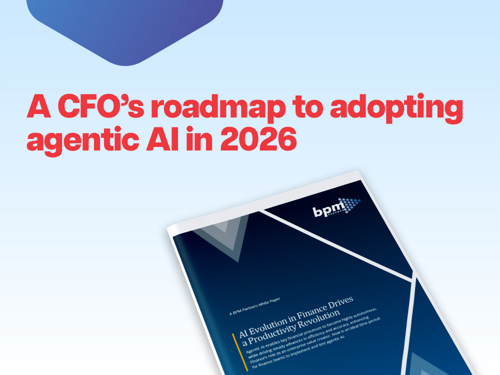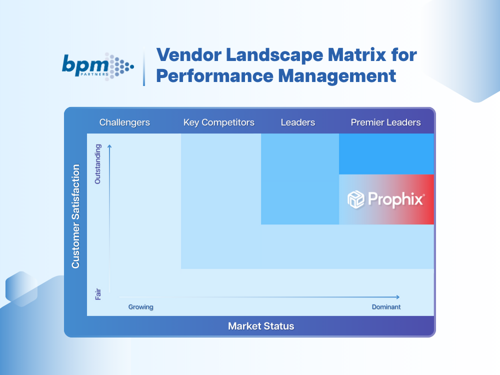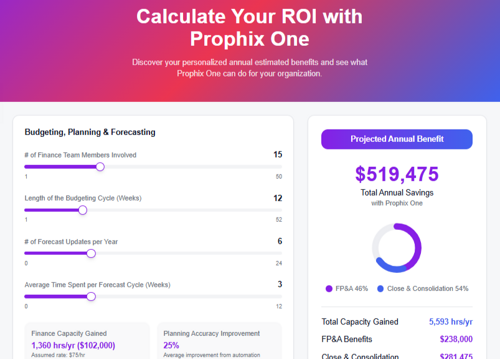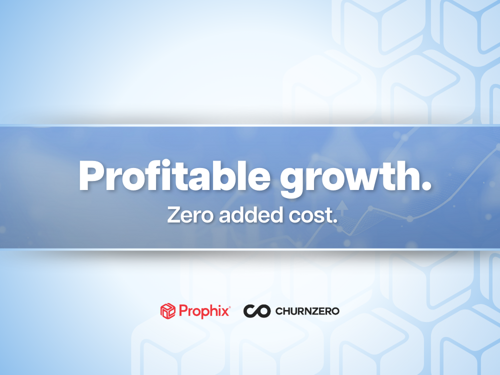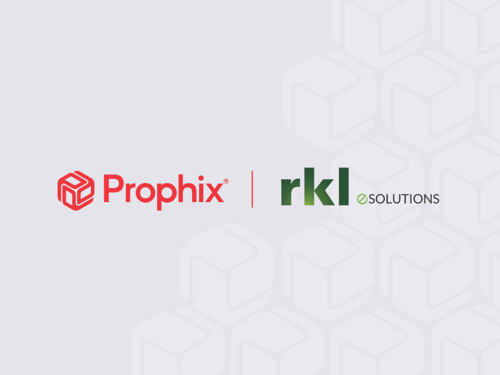Download the BPM Partners Whitepaper
AI in Finance: Innovations and Applications
Finance teams within organizations in other industries and financial institutions alike are watching their field change with every AI prompt.
November 27, 2025Artificial intelligence (AI) tools are transforming every industry. Many finance functions depend on processing massive amounts of data, identifying trends, and finding opportunities. All tasks that AI tools are rapidly showing an affinity for. Finance teams within organizations in other industries and financial institutions alike are watching their field change with every AI prompt.
What is Artificial Intelligence in finance?
Artificial intelligence covers a wide range of tools and can be used across all sorts of mission-critical workflows. Understanding the distinct technologies behind what we refer to as AI is crucial to better grasping its role in finance, especially since they’re often combined within a single tool. Let's look at some of the key components.
- Machine Learning (ML): At its most basic level, this subset of AI covers technology that combs through massive data sets, creating algorithms to identify patterns or predict outcomes.
- Natural language processing: This technology allows AI tools to understand and replicate human language. It’s typically used for sentiment analysis, automated translation, and writing text that sounds human.
- Predictive analytics: An application of machine learning models, predictive analytics allows AI tools to turn trends from existing data sets into predictions. Imagine an AI tool that uses your organization’s historical finance data to forecast future revenue.
- Neural networks: This kind of AI technology replicates the structure of human neurons to process a complicated sequence of inputs and then identify and take the proper action.
Key applications of AI in finance
While the surge of popularity for AI tools is relatively recent, their applications in finance are already clear. Here are key functions where reliance on AI is bound to increase.
Risk management
In risk management, finance teams identify potential risks that could affect their organization, devise plans to mitigate them, and guide stakeholders toward the best course solution should these risks manifest. AI tools automate the lengthier parts of this process (e.g. analyzing data to identify risks), allowing teams to focus on areas where human input is essential.
Fraud detection and prevention
Fraud is unsurprisingly a massive problem in finance, causing $10 billion in losses for consumers in 2023. While automated systems are already in place to do much of the work involved in fraud detection and prevention, recent advancements in AI technology (especially in machine learning and neural networks) are essential improvements.
Credit scoring and loan processing
Calculating credit scores and processing loan eligibility are data-intensive processes. AI tools like Prophix One’s AI insights are particularly well-suited to crunching through massive sets of data and turning them into useful outputs.
Data analysis and predictive analytics
No matter what kind of financial data you’re working with, AI is a powerful tool for turning sprawls of data into action items, detailed reports, or summaries for important stakeholders. This can give you a head start on any processes that involve working through large amounts of data.

Implementing AI in finance teams
While AI can have a massive impact on your finance team’s processes, proper implementation is key. That starts with tool selection. Tools like ChatGPT might be popular, but they’re not always well-suited to niche functions like finance.
A tool like Prophix One, for example, is a dedicated Financial Performance Platform with AI-powered features across workflow automation, report insights, predictive forecasting and more. That means it’s better for managing all your financial processes while giving you the productivity boost AI tools are known for.
Before deploying an AI tool, be certain it’s suited to business teams in organizations like yours. Too many of these tools are designed for individual use, which makes deploying them at scale more difficult.
Key stakeholders
When it’s time to deploy an AI tool in your organization, these are the stakeholders who need to be involved:
- The CFO: You don’t need to involve the CFO in every aspect of adoption, but they need to be informed as your implementation moves forward as they will likely use these tools too. You’ll also have to give them opportunities to voice their concerns and see those concerns resolved.
- Business leaders in other functions: Since changes to finance processes impact most other teams, these leaders need to be consulted when AI tools are adopted.
- Finance analysts: As the people most likely to be impacted by AI adoption, finance analysts need to be involved (or at least represented) in any implementation.
- Controllers: A financial controller can bring valuable insights into any AI implementation since they lead crucial finance processes. Getting their input on which tools to choose and which processes to apply them to can save you time down the road.
Best practices for adoption
While AI tools can make a massive impact on your financial processes, there are some important things to keep in mind when it comes to implementing them:
- Test the tools: Just because an AI tool promises to make certain processes run more smoothly doesn’t guarantee they’ll do that in practice. When implementing a new tool, start with a test project and a limited data set to make sure it’s a good fit. You can broaden usage after that.
- Training: Anyone who uses a particular tool needs dedicated training time to be brought up to speed efficiently. That’s true with AI tools as well.
- Data quality: While one of the main advantages of AI is automating manual work, that doesn’t mean you shouldn’t periodically review an AI tool’s outputs. Otherwise, you may find yourself basing important workflows on inaccurate data.
- Security: When working with financial data, you have certain security standards to uphold. Any AI tool you use can rapidly become the weak link in your security infrastructure if its security risks aren’t properly evaluated.
- Compliance: Are there regulations in your jurisdiction that might not be met by an AI tool you want to implement? Have experts examine this thoroughly before you deploy any tool.
Ethical concerns and governance of AI in finance
While AI tools bring massive productivity gains to finance teams, they come with some ethics and governance concerns:
- Suggestions vs. choices: How can an organization determine when an AI tool is guiding a finance team towards making its own decision and when that decision is made for them? Outsourcing decisions to AI tools can be as destructive as it is tempting.
- Malicious actors: An AI tool can’t differentiate between an authorized user and a malicious one. As AI capabilities in finance advance, so does the risk of these being used maliciously.
- Harm reduction: Can AI tools be used to reduce financial harm? Or will built-in biases inherited from humans widen wealth gaps and other examples of inequality?
- Job security: Productivity gains from AI can have impacts on job security, and some organizations might be tempted to lower their headcount to reduce expenses while keeping productivity relatively equal.
Any organization relying on AI tools needs a robust governance framework that continually addresses these concerns and reviews their impacts.
Leading AI innovations in finance
Now that we’ve covered the AI technologies to be implemented and their risks, let’s review some of the most important areas in finance where they’re likely to be deployed in the coming years.
Enhanced Financial Planning and Analysis (FP&A)
The FP&A umbrella covers essential financial processes that give organizations a complete picture of their financial health, past performance, and foundations of future performance. With AI tools, more data can be processed quickly, leading to better insights and more accurate forecasts.
AI in risk management
AI use in risk management can lead to a more comprehensive understanding of the financial risks an organization faces, better plans for meeting them, and faster adaptation. While human input will still be required, AI models are rapidly becoming more suited to identifying patterns in seemingly unrelated events.
Intelligent data analysis
Your finance team could spend months analyzing all their financial data and still not generate every single insight that data could lead to. Since AI tools are powerful data-crunching assistants, you could generate more scenarios and insights in a fraction of the time.
AI in financial analytics
AI-powered automated reports can give stakeholders a better understanding of their organization’s finances without requiring hours of work from other teams. And because these reports are updated in real-time with software like Prophix One, they’ll know they always have the right data.
Fraud detection and prevention
AI tools already play a role in fraud detection and prevention, and that role is only increasing. The proliferation of such tools on the side of fraudsters can make fraud more common, meaning financial organizations must stay up to date on AI capabilities.
Benefits of AI in finance
AI tools bring significant benefits to finance teams, to the extent that there will soon be a time when most, if not all organizations will need to start using them. These benefits include:
- Increased productivity: The main benefit of AI is being able to do more in less time. By streamlining some aspects of your financial processes, you unlock more time for tasks that need human input.
- Improved decision-making: AI gives stakeholders and analysts more data, more insights, and more to work with when making important decisions.
- Cost savings: Any process optimized with AI takes less time and involves fewer errors. That makes them more efficient and, in the end, less expensive.
- Innovation and competitive advancement: AI is the next step in many financial processes. By adopting cutting-edge finance technology, you’ll get a step up on the competition.
Moving forward with the transformative power of AI in finance
AI is already transforming finance processes, but there is still much room for innovation. By embracing these technologies while deploying them responsibly, you can completely transform your organization’s processes and workflows and stay ahead of whatever challenges lie ahead.
Learn more about Prophix One AI Insights.
